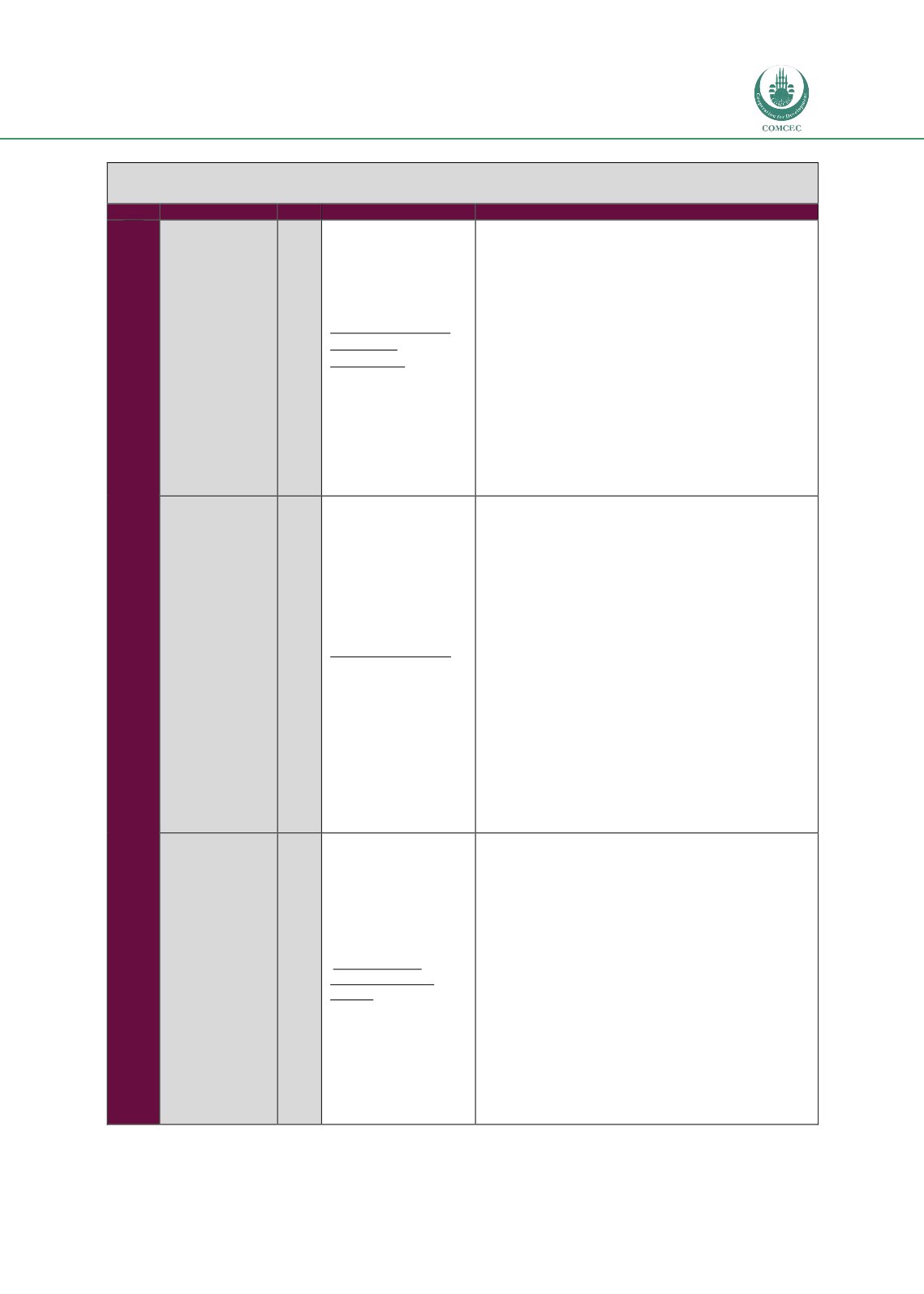

Improving Institutional Capacity:
Strengthening Farmer Organizations in the OIC Member Countries
101
3. Has the Government announced any recent policy initiatives explicitly designed to
encourage farmer organizations?
Group
Country
Y/N
Source
Comments
Arab Countries (cont’d)
Bahrain
National Initiative for Agricultural DevelopmentYes, although not exlusively targeted towards FOs. Because
of its relatively small contribution to the country's GDP (an
average of around 0.6%), agriculture in Bahrain has not
been the main preoccupation of the government. However,
in the last 10 years, the growth in fisheries, poultry and egg
production -- combined with increasing worries about food
dependence and insecurity -- led the Emir's government to
take on several initiatives to help drive forward the
agricultural sector. The main initiative is "The National
Initiative for Agricultural Development," which was
launched with the aim of conserving arable land,
encouraging investors to invest in agriculture and
supporting local Bahraini farmers to improve their produce
and grow their returns. This initiative works in partnership
with the Ministry of Municipalities & Urban Planning &
Agriculture & Marine Resources Affairs. However, it is
independently run by HRH Princess Sabeeka Bint Ibrahim
Al-Khaleefa.
Mauritania
Worldwide ExtensionYes but none recently. An historical overview: Starting in
1949, the French colonial government started exploratory
agricultural research on date palms and production
systems prevailing in the Senegal River valley and oases.
Following independence, the National Agricultural
Research and Development Center (CNRADA) was
established in 1972 at Kaedi by the then-Ministry of Rural
Development. A School of Cooperatives (CNFVA) was
opened up to educate villagers in cooperative systems and
management skills. These institutions were being built at a
time when about 70% of the Mauritanian population
comprised nomads and subsistence farmers, which
continued into the 1980s. Starting in 1974, education
programs for farmers became more coordinated, and
CNFVA organized a series of seminars to expose farmers to
new technologies and farm management skills. Donor-
funded programs started mainly in the 1990s, and have
focused on establishing and/or working through grassroots
organizations like FOs. Special attention has also been
devoted to women FOs. But because of harsh conditions,
these organizations lack extension and often rely on the
public services.
Morocco
Development of Cooperation Office (ODCO)Yes. An historical overview since independence: (i) Between
1956-1983, the state intervened heavily in encouraging the
creation and the development of FOs by establishing the
legal framework for their creation and establishing the
Development Office of Cooperation in 1962. The
government also provided subsidies to FOs, which led to FOs
becoming dependent on the state support and killed the
spirit of enterprise. (ii) In 1983 a policy was announced --
but only implemented a decade later in 1993 -- to help FOs
become independent by disengaging the government from
its heavy involvement in FO. A law unique to cooperatives
(including FOs) was enacted in order to make cooperatives
a tool for job creation and free enterprise. This process
started in 2000, as new government bodies were set up to
finance the creation of FOs such as "Maroc Vert", the
National Initiative for Human Development, Ibhar, etc. (iv)
Women farmers' organizations are encouraged, leading to
a current estimate of 8369 women currently involved in
FOs.

















